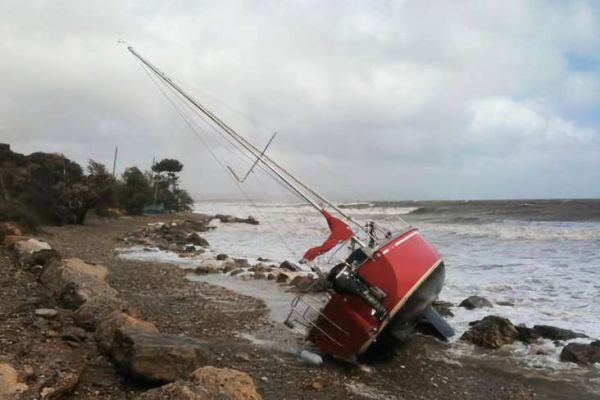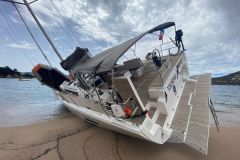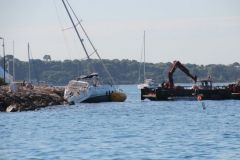Insuring your boat, a obligation??
Boating insurance is not compulsory, but more than indispensable. First of all to have a place in the port, but also to protect yourself in case of an accident. Even boats stored in the dry on a trailer should be insured at least at a minimum.
There are two types of insurance that are complementary, but can be separated. While it is therefore possible to choose the minimum insurance, most insurers offer a complete package. For example, Guillaume often advises his clients to opt for a multi-risk insurance, which will cover the damage caused on another boat, but also the damage on your own.
"It is strongly recommended that you also take out damage insurance. It is obvious that the customer has free will and everything depends of course on the value of the boat. We will study the client's request and respond to his needs, giving him the necessary visibility of the consequences if he does not take out damage insurance" details Guillaume.
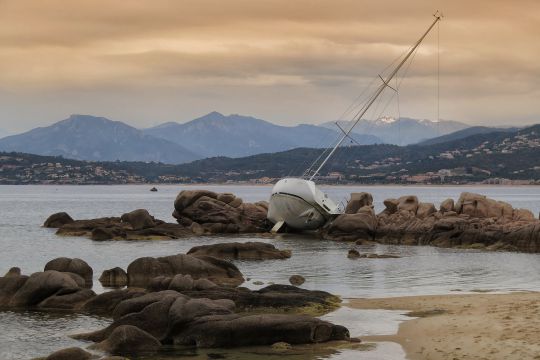
2 components in yacht insurance
- Navigation liability (RC Navigation) which covers damage created to a third party. The latter is automatically given in case of affiliation to the FFVoile.
"As a boat owner, when sailing and causing damage to a third party, it is his duty to take responsibility for repairs. And without insurance, it can be very expensive. So if it's not compulsory, it's essential. Ports also require insurance to stay there." explains Guillaume.
As its name suggests, this insurance covers damage caused on one's own vessel, even if one is responsible for the damage. We are talking here about events at sea, storms, damage, collisions or even the total loss of the vessel.
"This insurance also provides additional guarantees to cover a number of additional costs. For example, it protects the yachtsman in the event of a dispute with a shipyard" details Guillaume.
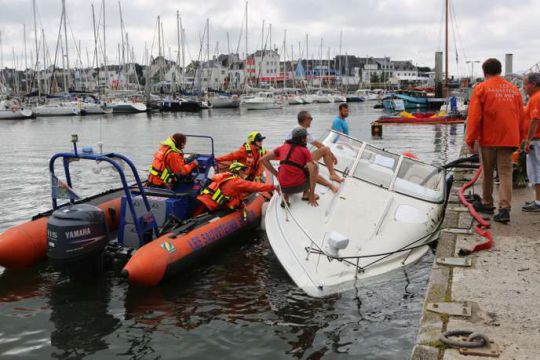
And the guarantees complémentaires??
Each insured is insured for a defined navigation zone, the European quadrilateral. If you leave this zone, you must then inform your insurer to opt for additional cover, which will cover you and your boat, but also your crew.
"We're going to study the planned navigation - is it subject to piracy for example -, the limitation of the ship according to the regulations, and the ability to do so. We ask our clients for a nautical CV. We will also need to know the crew on board and their capacity. We have to check a certain number of things; we don't let a yachtsman leave without making sure that everything is in compliance with the regulations" supports Guillaume.
The same insurance for a sailboat and a boat at moteur??
If the basis of cover is the same, it all depends on the nature and value of the boat. From a regulatory point of view, it will be necessary, for example, to prove the possession of a licence in the case of a motor boat.
Which remboursement??
On a new boat, the value reimbursed in the event of total loss will be that of the replacement value. For a second-hand boat, a market value will be established, i.e. the price at which it can be sold on a given market. In all cases, it is a marine surveyor, specialist in his field and with knowledge of the marine environment, who will analyse the damage suffered.
Which tarif??
It all depends on the nature of the boat to be insured, its condition, its value and a number of criteria. " To price the insurance of a boat, we base ourselves on a tariff grid which takes into account a certain number of elements. But it depends on a certain number of criteria. Everything depends on the value we insure and the characteristics of the boat, its age, but also the type of navigation the owner will do. We then end up with a tariff" details Guillaume.
What is the insurance business of plaisance??
There are several types of insurers. The simple agent, the broker - who acts as an intermediary between the insurance company and the client - and the shipping agent, as is the case with AMTM Marine Insurance & Transport MADER.
"It's a specialist's job. We are shipping agents and brokers specialising in yachting, which gives us the skills to manage after-sales service and investigate claims. This is one of our particularities" explains Guillaume.
Thus, the ship's agent has mandates to manage several companies, which gives him a certain autonomy. He manages underwriting and claims management. He can also build products that he then has validated by an insurance company, because he has the knowledge and mastery of the subject.
